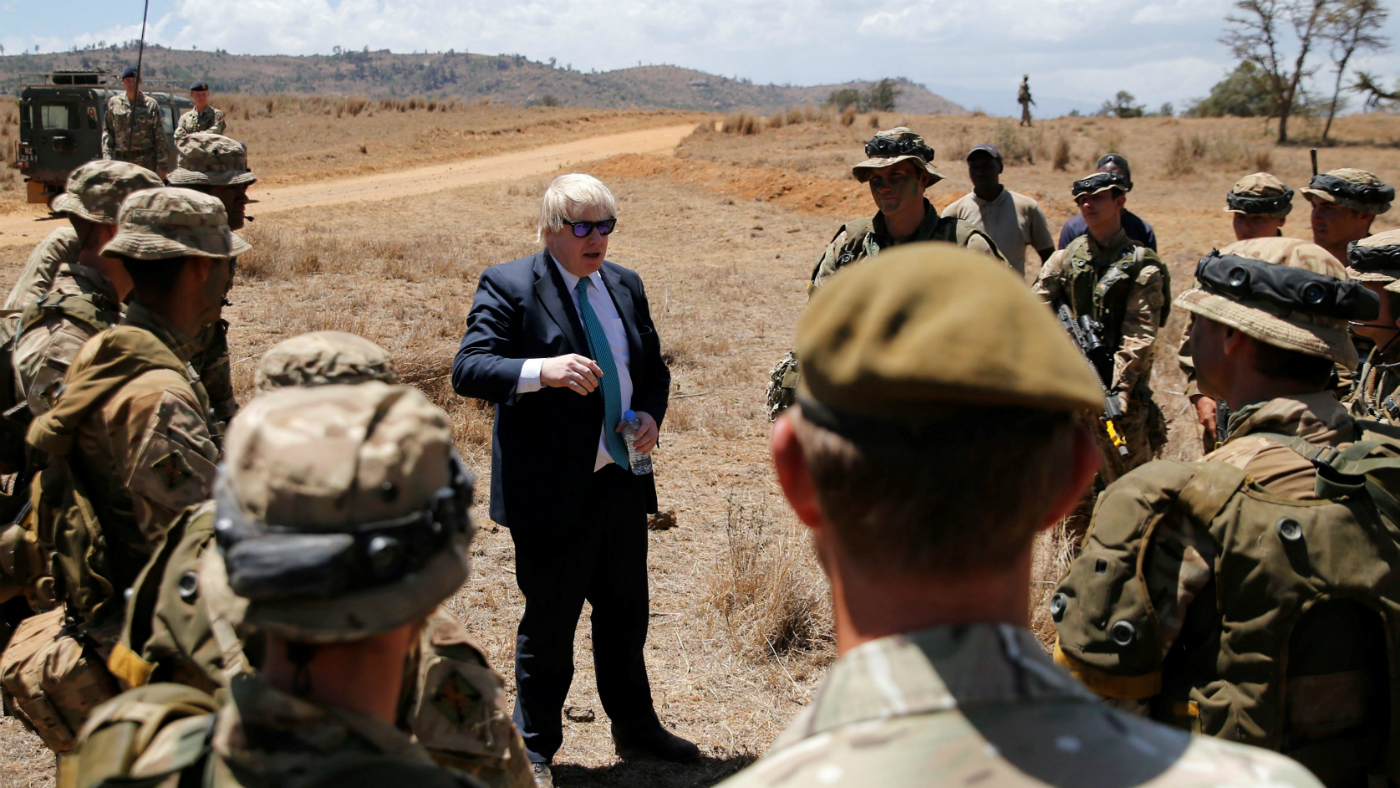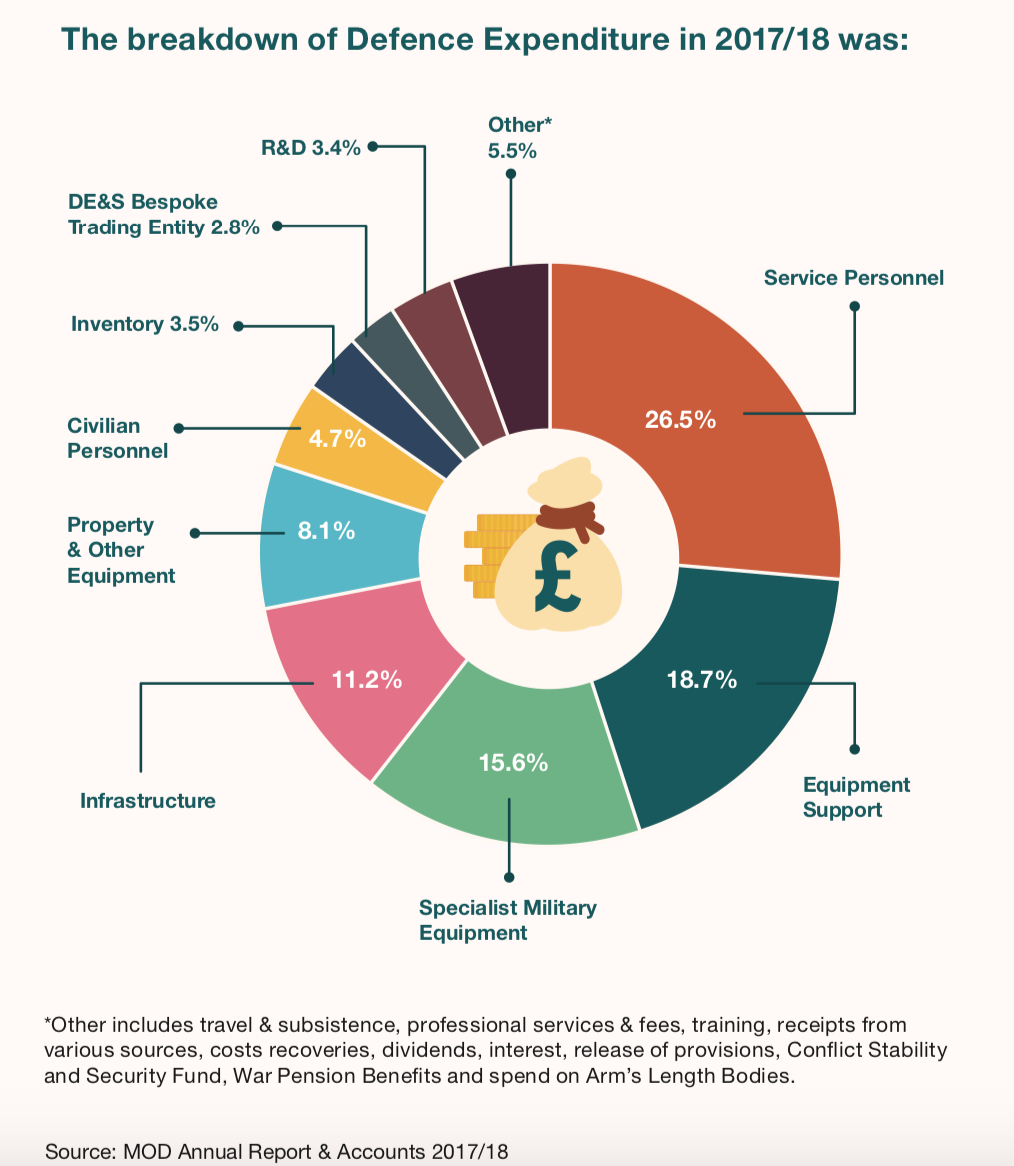UK defence spending: where the money goes
Nato meets to show unity on 70th anniversary

A free daily email with the biggest news stories of the day – and the best features from TheWeek.com
You are now subscribed
Your newsletter sign-up was successful
Boris Johnson has said the UK’s commitment to Nato is “rock solid” as leaders of the military alliance met today to celebrate its 70th anniversary.
He and US President Donald Trump were among the dignitaries to meet in Watford today to discuss cyber-attacks, the strategic threat posed by China, and Russia.
The gathering has been marred by rows over Turkey’s military action in Syria, comments by French President Emmanuel Macron that the alliance is “brain dead”, and a video showing Princess Anne and world leaders appearing to mock Donald Trump.
The Week
Escape your echo chamber. Get the facts behind the news, plus analysis from multiple perspectives.

Sign up for The Week's Free Newsletters
From our morning news briefing to a weekly Good News Newsletter, get the best of The Week delivered directly to your inbox.
From our morning news briefing to a weekly Good News Newsletter, get the best of The Week delivered directly to your inbox.
It has also put defence spending in the spotlight. Here is where the UK’s money goes.
How much does the UK spend on defence?
The Government says that the UK currently spends 2.1% of the UK’s GDP on defence.
But a report by the Defence Select Committee, published in July, claims that on a like-for-like basis defence spending actually dropped below 2% in 2014/15 and hasn’t recovered since.
A free daily email with the biggest news stories of the day – and the best features from TheWeek.com
“While the UK continues to meet its Nato commitment to spend 2% of GDP on defence, this is only because in recent years it has included several items of expenditure which it had not counted previously, such as pensions and contributions to UN Peacekeeping Missions,” explained the committee chair Julian Lewis.
Without these new inclusions, defence spending was just 1.8% of GDP in 2017/18, marking a continued proportional decline from around 6% in the 1960s, 4.5% in the 1980s and 3% in the mid-1990s, he said.
How does UK defence spending compare to other countries?
The UK is among the top four defence spenders in Nato by share of GDP, reports the UK Defence Journal.
According to this analysis, Estonia and the UK both spend 2.13% of GDP on defence, while Greece spends 2.24% and the US spends 3.42%.
The UK is the second biggest overall spender in Nato, putting nearly £50bn into defence annually compared to Germany’s £45bn, France’s £42bn and Italy’s £20bn.
However, the US dwarfs its Nato allies, spending £604bn ($730bn) a year on defence. In 2018, the US spent almost as much on its military as the next eight top-spending countries combined.
China is the second largest spender in the world, increasing its defence spending to £207bn in 2018.
World military defence spending grew to £1.49trn in 2018, a 2.6% increase on 2017 according to the Stockholm International Peace Research Institute (Sipri).
Where does our defence budget go?
The biggest spending is on service personnel, followed by equipment support and then specialist military equipment.

MoD service personnel and civilians are deployed across the world, from missions against Isis in Iraq and Syria to Nato sorties in Estonia, Poland, Hungary, Romania and Bulgaria.
The MoD supplies troops and equipment to African countries including Mali, Nigeria, South Sudan and Somalia.
British troops take part in UK peacekeeping and aid missions around the globe, but also provide assistance at home - hundreds of personnel were deployed in response to the attempted tube bombing at Parsons Green, the Salisbury chemical attack, and the Manchester Arena bombing.
In 2018, the MoD committed to spending £179.6bn on its equipment plan over the next 10 years, £165m on its cyber plan and £50m on a five-year space programme.
Why do we spend so much on defence?
The Ministry of Defence funds the Army, Navy and Air Force, as well as civilian personnel.
It has eight defence tasks:
- defence, security and resilience of the UK and its overseas territories
- nuclear deterrence and the defence nuclear enterprise
- contribute to improved understanding of the world through strategic intelligence and the global defence network
- influence through international defence engagement
- overseas defence activity
- promote UK prosperity and civil society
- direct defence
- strategic base and enabling functions
As well as spending a lot of money, the UK defence industry also brings in a lot. It is the second largest defence exporter in the world, and in 2016/17 MoD direct expenditure with industry supported 123,000 jobs.
What are the min parties pledging on defence?
Under a new Conservative government, the Ministry of Defence would receive a 2.6% spending increase, equivalent to £2.2bn. The UK would renew Trident and would continue to exceed the Nato target of spending 2% of GDP on defence.
Labour has pledged to maintain the UK commitment to Nato and spend at least 2% of GDP on defence, and would also renew Trident. However, it would stop arms sales to Saudi Arabia immediately and back a new law that prevents a prime minister from going to war without the permission of Parliament.
The Lib Dems would also maintain the 2% of GDP spending commitment, and maintain a nuclear deterrent. However, the party would scrap one of the four submarines that make up the Trident system. Graduates in STEM subjects would also receive £10,000 one-off payments to become Armed Forces engineers.